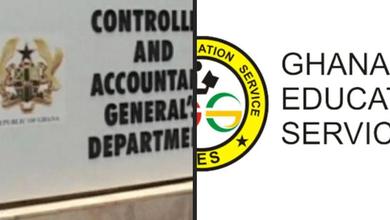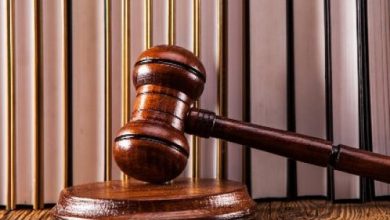Moving into a new apartment can be a very exciting time for us all. However, it is important to not get ahead of yourself and let that excitement get the best of you. There can be many things wrong with an apartment that you may not see with the naked eye. Thus, it is very important to do an in-depth check of the apartment before you agree to rent it. Here are 11 things you should inspect before renting a new apartment.
1. Check the cell phone reception
Our cell phones are more important in our lives than ever before. A ton of people rely on it for a ton of different things from work, to communicating with friends and family, and even keeping track of day to day tasks. If you can barely use your phone in your new apartment due to bad reception, that’s a major problem. When you check the apartment out, make sure to try and use your phone/make a call in different areas of the home to make sure the reception is consistent and up to your standards.
Wi-Fi is also something that’s very important to us all. While some landlords include utilities such as water and heat in the rent, others might offer rental incentives such as cable and Wi-Fi, so don’t forget to ask about the Wi-Fi situation.
2. Check the water pressure and temperature
This is something that normally flies under the radar, but is something we must deal with each and every day. There is nothing worse than wonky water temperature and water pressure that is much too hard or gentle. While you can’t go and take a shower while inspecting the apartment, you can test the pressure and temperature on your hand to make sure it’s suitable. If you notice that there are issues with it, consult with the landlord or company to see if something can be done about that before you move in.
3. Make sure there are no “pests”
Humans aren’t the only things that like to call apartments home. Oftentimes, pests like bugs and rodents can find their way in, and that is obviously a huge problem for most people. Having pests residing in your apartment is unsanitary and just plain old gross in every way. The best way to check for these is to look inside or on top of the cabinets to see if there are any feces there. Also, checking the walls and baseboards for any large cracks or holes is also a good idea.
If you’re still not completely satisfied ask the landlord to see copies of the most recent pest control treatments to the apartment and/or the building. If there are current pest issues it should be stated in the lease, since the landlord should disclose important information about the apartment, such as pest issues.
4. Visit the apartment at night
You would be surprised at how much a neighborhood or building could change from day to night. It could be bright, calm, and safe during the day but transform into dark, chaotic, and dangerous at night. While you won’t be able to actually check the apartment itself out at this time of night, you will be able to make sure the neighborhood is up to your standards. You also want to make sure to see how the lighting around the parking lot and apartment itself is. A lack of light can sometimes be concerning, but you also don’t want it to be too bright.
5. Check the power outlets and electrical work
A ton of the things we use every day require a power outlet to work, such as phone chargers, kitchen appliances, TVs, etc. When visiting an apartment, you should bring something small to plug into every outlet you can find to ensure they all work. Can’t think of anything small to bring with you for testing? Head to your local hardware store and purchase an Electrical Receptacle Wall Plug AC Outlet Ground Tester. You can find one for around $5-10 and it will check the circuit status for each individual outlet in the apartment. Also, test all of the lights throughout the apartment to make sure they turn off and on as they’re supposed to. If you move in without checking these and it turns out they don’t work, you might just be out of luck.
6. Take note of the parking lot at different times of the day
If you live in a busy apartment complex, it’s totally possible that you could have 100+ people there. That makes the parking lot very important. If there is assigned parking, it is slightly better, but you need to know the rules if someone takes your spot and such. However, if parking in unassigned, you will want to visit the apartment around the time everyone is getting home and leaving for work. This will give you a good idea of how hectic leaving the apartment will be and will show you how much competition for spots there is after work.
7. Speak to neighbors if possible
If possible, it’s a good plan to try and talk to some other people who live in the complex. They are past the “honeymoon” phase and have been living there for a while and thus, know how good or bad living there is. Ask them about any concerns they had, things they would recommend you do, etc. They could also likely comment on the maintenance staff and how the landlord(s) have been over the months and years. Another tip is finding out if there’s an apartment association group around that you could talk to first. If you’re dead set on a specific apartment and you’re not so sure about the neighbors it might not be a bad idea.
8. Test out the appliances
Just like you would test out the power outlets and electrical work in the apartment, testing out appliances is a good idea. Things like stoves, dishwashers, ovens, microwaves, and fridges are something we need and use almost daily. Inspect each of these appliances in-depth and make sure that they are in working order. If these things don’t work, you need to make sure to come to an agreement with the landlord about how to move forward and determine who is responsible for upkeep and repairs.
9. The lease itself
While looking at things throughout the apartment is important, it is also a good idea to inspect the thing you sign before you get the apartment. The lease holds all the information on the agreement and what is expected out of you. Read this from front to back and bring up any concerns you may have before you sign it. Many people have been surprised by learning something later on, when it was in their lease or rental agreement all along.
Examples can include the landlord’s policy on subletting. Most leases require a landlord’s consent to sublet. So if you’re planning on renting an apartment which you can sublet during the months you’ll be gone during the summer, you might want to double check this with the landlord before signing the lease. Other things can include renovations to the apartment, when you’ll get your safety deposit back after moving out, the renewal policy of the lease, and pest control responsibilities.
10. Document every impurity
When you are walking through an apartment that you think you will want to rent, it is important to take pictures of every impurity. Whether it is a hole in the wall, a rip in the carpet or a number of other things, you need to make sure you have evidence of these. If you don’t, there is a good chance your damage deposit will be reduced or you will be charged for this damage when you move out. If you can’t prove it was there before you moved in, you’ll likely be on the hook for it.
11. Check the apartment.
Mostly if there is a leakage, you will never know until it’s raining, Visiting the apartment, it can be painted early for you not to see. Get people to check the roof, experts will know. Leaking room can damage your valuable items. Documentation is important, try to make the owner give you all necessary documents.
More points soon
Stay safe as there are certain human beings who only want to prey on others.
Read Also
How to Become a Real Estate Agent in Africa (Ghana): Tips on the Basics
Scale of fees of Lawyers 2022/2023; How to Pay Less When you Contract an Attorney in Ghana
Source Credit: renthops.com
seekersnewsgh.com






